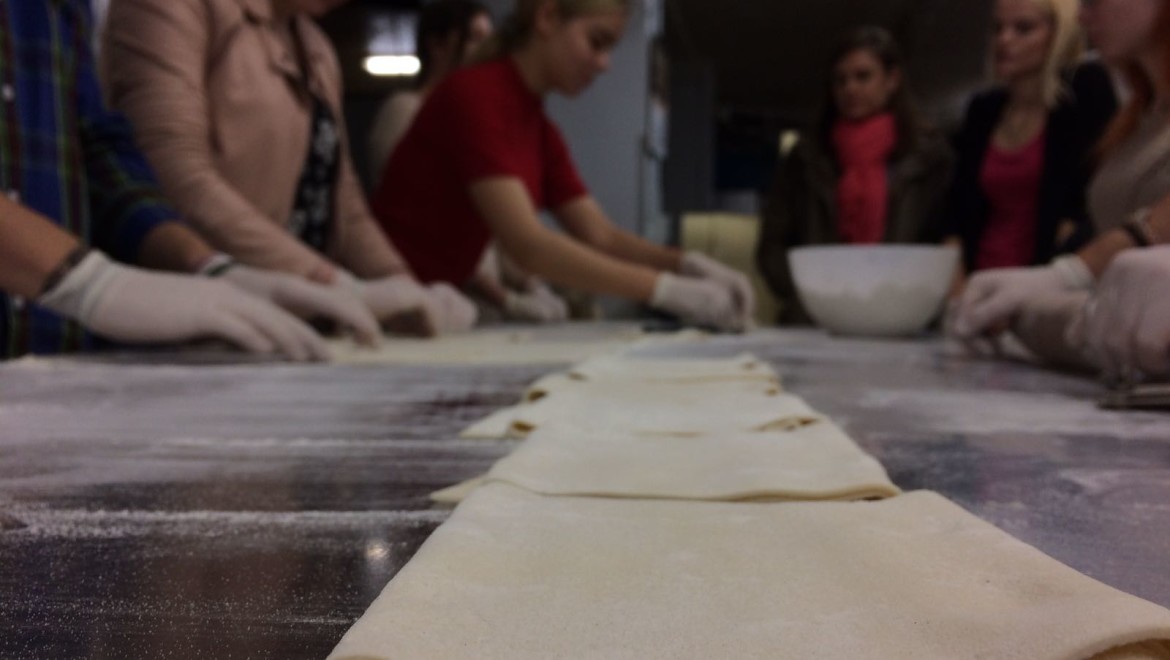Students take part in pilot #IGCAT project set to monitor new models for an educational approach to local cultures and gastronomy
Hospitality students from Latvia have just received first-hand experience of sustainable European tourism offers connected to gastronomy and culture in Catalonia that is currently celebrating the title European Region of Gastronomy 2016. IGCAT organised and hosted the tour that began in Tossa de Mar on 19 November with a focus on SME food souvenir development. The tour then took the students to Sant Pol de Mar, EUHT STPol on 20 November, where the students had first hand experience of new creative tourism experiences such as pastry and paella masterclasses. The itinerary also went to Sant Andreu de Llavaneres where the students visited a traditional Bakery Can Sala and has practical hands-on experience in producing traditional local sweet products. Then on 21 November the students were taken to Barcelona city to visit the Chocolate Museum and learn more about the origins of cocoa and chocolate making traditions in Europe.
This is the first of a seven part itinerary that takes in Catalonia (ES), Comunidad de Madrid (ES), Umbria (IT), Abruzzo (IT), Lisbon region (PT), Oeste Region (PT) and Alentejo (PT), all exciting European regions experimenting with the delivery of food experiences connected to traditional local culture and traditions in a sweetie way.
IGCAT is developing research on transnational creative experiences as part of an EU funded COSME project on cross-sectoral innovation for sustainable tourism. The project also involves partners in Portugal, Italy and Madrid and has been developed under the concept of the European Sweet’s Itinerary. The long-term aim is to increasing tourism flows in low/medium seasons for youth and professionals in Europe with an emphasis on gastronomy and culture.
About IGCAT
IGCAT (International Institute of Gastronomy, Culture, Arts and Tourism) it is an international network of experts that aim to guide, facilitate and support leaders in cities, regions and cultural projects to understand the potential of their distinct food, culture, arts and sustainable tourism assets.
Visit us on www.igcat.org for more information

